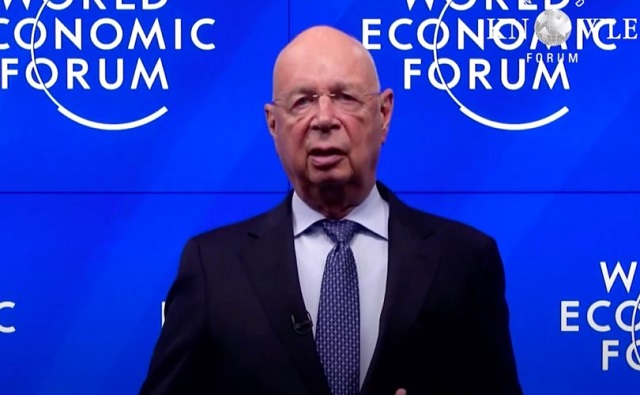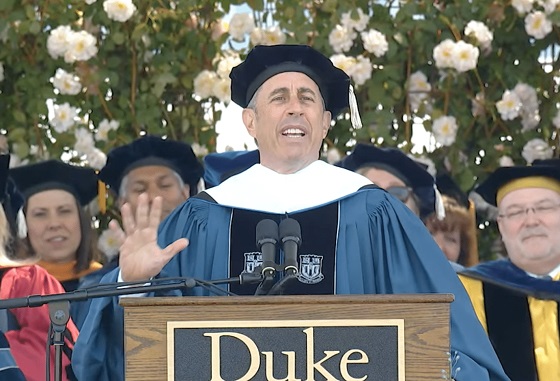Economy
“Ownership is Reconciliation” Indigenous Resource Network rebrands to emphasize shift in focus

News release submitted by the Indigenous Resource Network
Indigenous Resource Network Launches Ownership is Reconciliation
The Indigenous Resource Network (IRN) is proud to unveil its latest “Ownership is Reconciliation” Campaign, marking a transformative shift in focus and rebrand from its original “Ownership Changes Everything” campaign.
This new initiative aims to convey the compelling story of Indigenous ownership in resource projects, resonating with a diverse audience including social media, supporters, and fellow Indigenous organizations. “We initiated the ‘Ownership Changes Everything’ campaign to showcase the positive impact of Indigenous ownership in resource projects. The response has been overwhelming, with strong resonance among policy makers, industry, and Indigenous communities” shared John Desjarlais, Executive Director of IRN.
Central to the campaign’s mission is enlightening Canadians about the pivotal role Indigenous ownership plays in advancing the path to reconciliation. As part of this campaign, IRN advocates for the formation of a National Indigenous Guaranteed Loan program, empowering Indigenous communities with crucial access to capital required for equitable participation in major projects nationwide. Desjarlais elaborated, stating, “While it may not be a cure for all of the issues we see in our communities, it is an essential step in revitalizing funding opportunities for Indigenous development. We are heartened by the industry’s resounding support for a national program, as it de-risks projects and facilitates the vital capital Indigenous communities need to pursue ownership.”
IRN invites all stakeholders, Indigenous and non-Indigenous alike, to join forces in promoting a future where reconciliation and resource development harmoniously converge, generating sustainable employment opportunities and fostering shared prosperity for all.
Most Indigenous people support resource development: poll
In the polarized “environment versus economy” debate we’re having, there’s often an assumption, or an assertion, that Indigenous peoples are mostly against resource development. This is manifested in blockades, protests at legislatures and university campuses, and cries from activists that they stand in solidarity with Indigenous people when they stand against mining, oil and gas,
commercial fishing, hydro, and forestry projects.
For those familiar with the matter, this has always been a bit puzzling. Resource development is often the biggest economic driver of Indigenous communities, since it provides revenues for nations and well-paying jobs closer to home. Indigenous businesses are 40 times more likely to be involved in the extractive industry than Canadian ones.
There are absolutely cases where Indigenous nations have had disputes with resource companies, and when their rights have been disrespected. But this is not the same as being against resource development in principle. The public discussion of the issue has failed to grasp that key distinction: Indigenous peoples are not generally opposed to development; they are opposed to not being included, and they are against assuming risks without reaping any of the rewards.
To test that assumption, the Indigenous Resource Network, a platform for Indigenous workers and business owners involved in resource development, commissioned a poll by Environics Research. A total of 549 self-identified First Nations, Metis, and Inuit people living in rural areas or on reserves across Canada were interviewed by telephone between March 25 and April 16.
The poll found that a majority, 65 per cent, said they supported natural-resource development, while only 23 per cent were opposed. When asked how they’d feel if a new project were proposed near their own community, supporters outweighed opponents 2 to 1 (54 to 26 per cent). Not surprisingly, support was higher among working-age (35- to 54-year-old) respondents (70 per cent) than younger ones (18- to 34-year-olds, at 56 per cent), while Indigenous men were more likely to oppose resource development (28 per cent) than Indigenous women (19 per cent).
When asked more specifically about types of resource development, most supported both mining (59 per cent in favour versus 32 per cent opposed) and oil and gas development (53 per cent for, versus 41 per cent against). The main reason they cited was the “urgent priority” of access to health care that comes with economic development and jobs. They said other issues, such as governance, education, traditional activities, and federal transfers, were less important.
All this indicates a path toward greater social licence by Indigenous peoples to develop resources. For many respondents, their support hinges on the likely costs and benefits to them and their communities, as it does for most people. Respondents were more likely to support a project if it used best practices to: protect the environment (79 per cent), ensure safety (77 per cent), and benefit the community economically, such as by providing jobs and business opportunities (77 per cent). Interestingly, community consultation (69 per cent) and consent (62 per cent) were not as important, even though the public discourse tends to emphasize them.
Perhaps the most important finding was that the more a respondent thought he or she knew about the issue, the more he or she was likely to support resource development. Those who work in the industry or who discuss it beyond social media have a much better understanding of what’s needed for a project to get approved, the standards that must be adhered to, and the reclamation that must occur when a project is complete or decommissioned. For them, it’s more than saying yes or not to resource development; it’s about ensuring projects meet the highest possible standards.
The relationship between the resource sector and Indigenous communities isn’t perfect. But it’s economically important, and we would be well served by improving, not severing it. It’s high time we pushed the discussion about Indigenous peoples and resource development past polarizing and simplistic slogans. We hope this poll does just that. Most Indigenous peoples support resource development when high environmental standards are applied and good jobs and economic benefits follow. Let’s ensure that’s the case with every project.
Automotive
Forget Tariffs: Biden Should Look to Domestic Mining to Thwart Chinese EVs

Fr0m Heartland Daily News
By Rick Whitbeck
The Biden administration’s decision to raise tariffs on Chinese-manufactured electric vehicles, steel, computer chips, and other technological products is the epitome of a penny wise and a pound foolish.
To much of the nation, the news was a reelection flip-flop, or an attempt to prop up the electric vehicle industry Biden has prioritized since he took office, as part of his green agenda. The international supply chain for electric vehicles isn’t going to magically stop running through the Chinese Communist Party anytime soon.
If Biden really wanted to curb Chinese geopolitical power, he would make fundamental changes to his administration’s history of attacking domestic mining opportunities. Allowing development of copper, graphite, nickel, cobalt, and other critical and strategic minerals right here at home would go much further than imposing tariffs.
Biden has demonstrated affinity for promoting “net zero” policies and forcing transitions away from traditional energy supplies of oil, gas, and coal. In a nutshell, the attacks on domestic mining projects seem completely counterproductive.
According to the International Energy Agency, staggering quantities of subsurface elements will need to be mined by at least five times their current worldwide production by 2040 to meet the Biden administration’s green energy goals. Graphite, cobalt, and lithium all will be needed in quantities exceeding 25 times (or more) their current supplies. In the next quarter century, we will need twice as much copper than has been produced in the last 3,000 years. All of which is impossible when Biden won’t let us dig.
The U.S. has tremendous opportunities to have our own mineral resources. Yet, the Biden administration has thwarted their development at nearly every turn. For example, massive copper and nickel deposits could be developed in Minnesota at the Twin Metals and Duluth Complex projects, but Biden has ordered each of them off-limits for development. The Resolution Copper prospect in Arizona met a similar fate, with the Department of Interior placing on “indefinite hold” its approval.
The Western Hemisphere’s largest copper prospect is Alaska’s Pebble Mine. Kowtowing to environmental extremists—and ignoring a clean U.S. Army Corps of Engineers’ Final Environmental Impact Statement—the Environmental Protection Agency continues to stymie progress on a deposit worth more than $500 billion. All the while shutting down the possibility of 700 full-time jobs in an area of rural Alaska that has seasonal unemployment exceeding 20%.
Alaska has been the target of more than 60 administrative and executive orders targeting its resource-based economy since Biden assumed office. One of the most recent took place on Earth Day, when a congressionally-authorized road to the Ambler Mining District—an area rich in copper, zinc, and other strategic and critical minerals—was stopped by the Department of Interior.
Just like with the Resolution mine in Arizona, the Interior Department used “Indigenous opposition” as its deciding factor, even though many villages and tribes closest to the mining district publicly support the project and its future employment opportunities. In Alaska, the Biden administration literally blocks the road to the minerals Biden’s tariffs claim to protect.
Alaska’s governor, Michael Dunleavy, along with its entire congressional delegation, has been openly critical of the continued hypocrisy of the Biden administration when it comes to talking “net zero” and acting with vigor to oppose domestic mining projects. The same response has come from many within the Minnesota and Arizona congressional community. They’ve been unable to break through to the administration, as Team Biden chooses to listen to eco-activists and career bureaucrats with an anti-development agenda.
What would hurt China, empower America, and begin to chip away at the global imbalance would be mining and processing our crucial minerals and elements domestically. Let’s see if the Biden administration wises up to that fact, or if America tires of being subservient to the CCP and makes fundamental changes to federal leadership in November.
Rick Whitbeck is the Alaska State Director for Power The Future, a national nonprofit organization that advocates for American energy jobs and fights back against economy-killing and family-destroying environmental extremism. Contact him at [email protected] and follow him on X (formerly Twitter) @PTFAlaska
This article was originally published by RealClearEnergy and made available via RealClearWire.
To read more about domestic mining to escape reliance on China, click here.
To read more about clean energy and mining, click here.
Economy
Oil Lobby Working With Republicans Behind-The-Scenes To Push ‘Gateway’ To Carbon Tax

 From the Daily Caller News Foundation
From the Daily Caller News Foundation
By NICK POPE
America’s leading oil and gas trade group is working behind the scenes with moderate House Republicans to push support for a bill that critics say could lead to a domestic carbon tax, according to an email obtained by the Daily Caller News Foundation and sources familiar with the matter.
On May 14, Chris Boness, the director of federal relations for the American Petroleum Institute (API), sent an email to an API mailing list that named several House lawmakers intending to co-sponsor the PROVE IT Act alongside Republican Utah Rep. John Curtis. The trade group has also met with staffers to try to secure support for the bill, which API supports, according to sources familiar with the matter.
Assuming the House version is the same as the already-introduced Senate version, the bill would instruct the Department of Energy (DOE) to study the carbon intensity of goods — including aluminum, steel, plastic and crude oil — produced in the U.S. and the carbon intensity of products from other countries, according to E&E News.
Dozens of the PROVE IT Act’s critics have described the bill as a possible “gateway” to domestic carbon taxes because it would effectively instruct the federal government to calculate an implicit cost of carbon with few restrictions on how that official metric is used in the future.
“Thanks for those that joined today’s meeting,” Boness wrote in the email obtained by the DCNF. “Here is the list of current [Republican] cosponsors of the PROVE IT Act: Curtis, [Michigan Rep. Tim] Walburg (sic), [Ohio Rep. Bob] Latta, [New York Rep. Andrew] Garbarino, [Florida Rep. Maria Elvira] Salazar, [Michigan Rep. Mariannette] Miller-Meeks, [Indiana Rep. Larry] Bucshon, [Oregon Rep. Lori] Chavez-DeRemer. Additionally, [Georgia Rep. Buddy] Carter, [New York Rep. Mike] Lawler and [Pennsylvania Rep. Dan] Meuser seemed interested. Will keep you updated if others join and send updates on introduction.”
API representatives have had meetings addressing the PROVE IT Act with lawmakers’ offices, sources familiar with the matter told the DCNF. The offices of Curtis, Walberg, Latta, Garbarino, Salazar, Miller-Meeks, Bucshon and Chavez-DeRemer did not respond to questions about why they apparently support the bill.
Carbon pricing is broadly unpopular with Republicans, according to E&E News. Generally, polling indicates that Republicans do not consider climate change to be a problem in need of major government-led solutions and that energy affordability, for example, is a much stronger concern.
API Email re: PROVE IT Act by Nick Pope on Scribd

The bill’s proponents tout it as a measure to reward American companies for producing products more cleanly than foreign competitors, but opponents are strongly concerned that the bill instructs the federal government to effectively set a price on carbon with insufficient restrictions what the government can do in the future.
Notably, Republican West Virginia Sen. Shelley Moore Capito introduced an amendment to the Senate version that would prevent the data collected from being used as the basis for carbon taxes or tariffs, but Democrats killed that proposal while the bill sat in the Senate Environment and Public Works Committee.
Despite concerns from those opposed to the bill that it could be a first step to carbon taxes or tariffs, API supports the PROVE IT Act. Notably, API is in favor of carbon pricing.
“America’s oil and natural gas is produced under some of the highest environmental standards in the world,” a spokesperson for API told the DCNF. “Efforts like the PROVE IT Act are bipartisan opportunities to help study and quantify that advantage and demonstrate our industry’s commitment to producing cleaner, safer, and more affordable energy here at home while still supplying the energy our world needs.”
Some of the lawmakers API suggested could be interested in co-sponsoring the PROVE IT Act are wary, however.
Rep. Meuser, whose district includes energy-rich parts of Pennsylvania, is opposed to the bill as it stands, despite API’s suggestion that he is potentially interested in supporting it, a source familiar with Meuser’s thinking told the DCNF.
Rep. Carter is skeptical of policies that could lead to a carbon tax.
“Mr. Carter is reviewing the legislation,” a spokesperson for Carter told the DCNF. “He is absolutely opposed to anything that could lead to a carbon tax.”
In the eyes of those opposed to the bill, the PROVE IT Act would make it easier for a second-term Biden administration to pursue carbon taxes or tariffs that would hurt American consumers and certain types of energy producers.
“Our opposition to the PROVE IT Act is clear and concise. The latest attempt by some in Congress who are trying to create a structure that would lead to a domestic carbon tax will have price implications on our energy, particularly our fuel,” Tom Pyle, president of the American Energy Alliance, told the DCNF. “I do think that it is important to recognize that John Podesta made it clear that this is a second term agenda item for the Biden administration. And why would any Republican want to be the lead on helping President Biden further his war on affordable energy?”
Mike McKenna, a GOP strategist with extensive experience in the energy sector, expressed a similar view.
“The big problem with the bill is that it creates infrastructure to impose a carbon dioxide tax,” McKenna told the DCNF. “As everyone who has had more than ten seconds of exposure to the federal government knows, once that infrastructure can be put in place, it’s going to be used.”
-

 Agriculture2 days ago
Agriculture2 days agoThe China – Russia “Grain Entente” – what is at stake for Canada and its allies?
-

 COVID-192 days ago
COVID-192 days agoFauci’s Top Advisor May Have Illegally Evaded Records Requests, Experts Say
-

 Business2 days ago
Business2 days agoTrudeau’s environment department admits carbon tax has only reduced emissions by 1%
-

 Bruce Dowbiggin2 days ago
Bruce Dowbiggin2 days agoThe Most Dangerous Man In Canada: Emmanuel Goldstein Reborn
-

 Great Reset2 days ago
Great Reset2 days agoDr. Robert Malone reacts to Klaus Schwab’s resignation: ‘Resistance is not futile’
-

 International2 days ago
International2 days agoRep. Paul Gosar grills Biden official on government funding of underage ‘gender transitions’
-

 Business2 days ago
Business2 days agoGovernment red tape strangling Canada’s economy
-

 Health1 day ago
Health1 day agoUniversity of Toronto Study Finds Teen Marijuana Use Tied To Dramatic Increased Risk Of Psychosis







